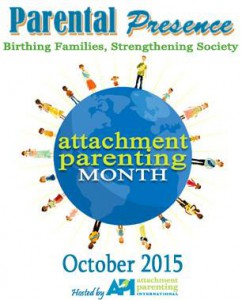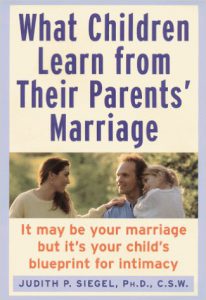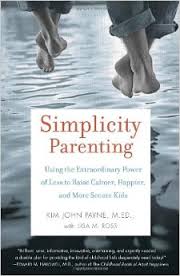By Barbara Nicholson, cofounder of Attachment Parenting International (API) and coauthor of Attached at the Heart with Lysa Parker
 Editor’s note: This post was originally published through Parent Compass, an occasional message from API’s cofounders looking in-depth on how Attachment Parenting (AP) intersects with wider society. In celebration of AP Month this October, the latest Parent Compass explores this year’s theme: “Parental Presence: Birthing Families, Strengthening Society.” Sign up to receive future issues of this API newsletter, and we hope you are inspired this AP Month to continue striving to balance parental presence with work responsibilities.
Editor’s note: This post was originally published through Parent Compass, an occasional message from API’s cofounders looking in-depth on how Attachment Parenting (AP) intersects with wider society. In celebration of AP Month this October, the latest Parent Compass explores this year’s theme: “Parental Presence: Birthing Families, Strengthening Society.” Sign up to receive future issues of this API newsletter, and we hope you are inspired this AP Month to continue striving to balance parental presence with work responsibilities.
“We have decades of research that tells us how important it is that a bond is established between parents and young children beginning at birth,” says Dr. Jack P. Shonkoff, Director of the Center on the Developing Child at Harvard University. “The need for time to form secure attachments is critically important. It’s one of the most important things you can do to build a foundation for a lifetime of healthy development.”
This quote was in reaction to the announcement that Netflix is offering up to 1 year of paid parental leave for its employees who give birth or adopt. Of course we rejoice at such progressive policies, but the sad truth is that few companies currently see the long-term benefit to their employees to instigate such policies.
Dr. Shonkoff went on to say in his remarks: “Babies need a sense of safety, predictability and responsiveness. We know from research that all areas of development — whether it’s cognitive development, emotional well-being or social development — has its foundation in this secure relationships. We do a lousy job as a society supporting parents after the birth of their babies. It’s unconscionable with all the deep scientific understanding we have now. It makes no sense to not offer more of that flexibility and support.”
Because of the overwhelming research, and our advocacy for infants and toddlers, Attachment Parenting International is in full support of strong parental leave policies, similar to those in many countries around the world. Sweden’s policy is probably one of the most generous, with 480 days of paid parental leave.
In the meantime, we are amazed at the creativity and dedication of parents to find solutions that will keep their bond with their children strong. From tag-teaming work schedules to enlisting grandparents and other invested family and friends, and creating cooperative childcare with trusted caregivers, many parents are finding solutions to keep their attachments strong. Some parents obtain loans to stay home longer: Many credit unions and banks will give loans in support of a family need, just like they would finance a car. But later this loan can cause a problem if you are not financially secure to repay. And unless you have scotland debt help near you which can help you in repaying the finances over a period of time with the help of their deeds, I don’t think it is a good plan taking such loan.
Lysa helps a lot with the care of her 2-year-old granddaughter, and I am often on-call for family friends that are juggling young children and work schedules. We feel so much compassion for these children who need consistency and trusting relationships — not a constantly changing cast of caregivers who may love children but who are also looking for higher paying jobs and less stress. We are amazed that even in the best university daycares, there is a large turnover every semester of childcare providers. There is such disconnect with the research and its application!
API Support Groups can be a wonderful resource for parents who do not have extended families nearby. Finding friends that have the same parenting values is another critical component in deciding on a non-parental caregiver.
As we move into another election cycle, we encourage all of you to pay attention to candidates who seem to have a particular understanding and compassion for babies and young children, and strong supportive policies. A strong mayor or city council member can have a tremendous impact on community awareness and progressive policies. Look into your state’s policies, too, as they vary tremendously. You might be pleased to know that your state has stronger leave policies then your place of work, and you can stagger the leave of each parent, allowing for more time at home.
Good luck to all parents who are looking for creative solutions! Talk to your local API Leaders, API Support Group members and Attachment Parenting families from around the world on API’s online Neighborhood forum for ideas, too.
Inspired to better balance parental presence with the busyness of our lives?
 API announces a special API Live teleseminar event on October 19 at 9:00 pm EST/6:00 pm PST as part of AP Month. Call in from the comfort of your home or while on the go to listen to and learn about Simplicity Parenting from Kim John Payne. Register today! Can’t make it that day? Everyone who signs up gets a recording of the teleseminar to listen to on their own time.
API announces a special API Live teleseminar event on October 19 at 9:00 pm EST/6:00 pm PST as part of AP Month. Call in from the comfort of your home or while on the go to listen to and learn about Simplicity Parenting from Kim John Payne. Register today! Can’t make it that day? Everyone who signs up gets a recording of the teleseminar to listen to on their own time.
 Kim John Payne helps families recognize the importance of parental presence, even more so in this day and age when so many pressures are taking the focus away from connected parenting. Through this teleseminar, you’ll walk away with a renewed focus for yourself and your family. To get a taste of his message, follow along on the API Reads discussion of his book, Simplicity Parenting.
Kim John Payne helps families recognize the importance of parental presence, even more so in this day and age when so many pressures are taking the focus away from connected parenting. Through this teleseminar, you’ll walk away with a renewed focus for yourself and your family. To get a taste of his message, follow along on the API Reads discussion of his book, Simplicity Parenting.

 I just finished reading the book What Children Learn from Their Parents’ Marriage by Judith P. Siegel. You’ve probably been seeing quotes from the book over the past month as I’ve been reading along.
I just finished reading the book What Children Learn from Their Parents’ Marriage by Judith P. Siegel. You’ve probably been seeing quotes from the book over the past month as I’ve been reading along.





 Two passages that stood out to me are below:
Two passages that stood out to me are below: